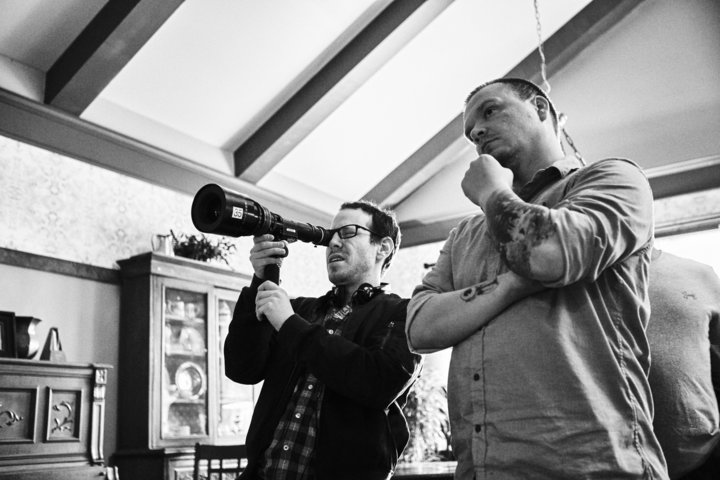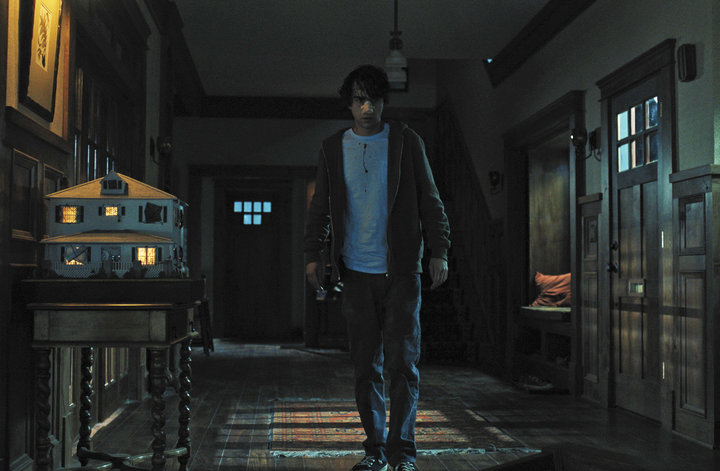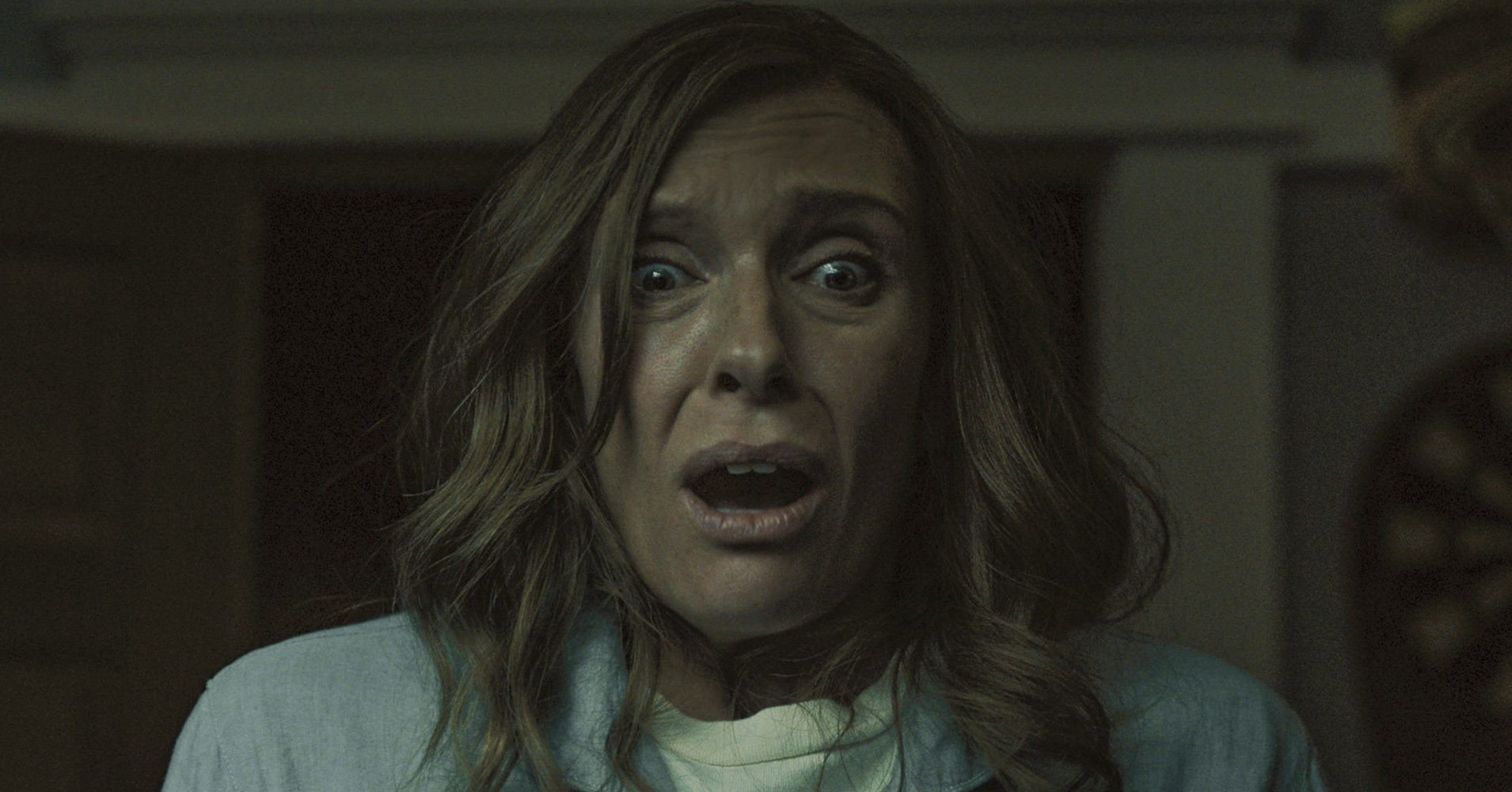[ad_1]
Warning: Spoilers abound.
Like all great horror movies, “Hereditary” requires time to process ― a rumination period, if you will. The devil’s in the details, and the details can be hard to piece together the moment Joni Mitchell’s “Both Sides Now” serenades the end credits.
But it’s also the kind of movie you want to understand ― and the kind that seems to want you to understand it, even if writer/director Ari Aster told me he prefers “the David Lynch method of not explaining anything and allowing people to have their own experience.”
Aster can’t abscond with that Lynchian model just yet. Lynch’s macabre surreality doesn’t invite concrete interpretations, but the more precise mythology of “Hereditary” does.
Having seen the movie three times, I will say that the clues planted throughout its first half ― focused on the Graham family’s slow-burning trauma ― do pay off in its second half. Nonetheless, by the time demon worship has invaded the clan’s bloodline, “Hereditary,” which opened in theaters June 8 and has grossed a dignified $35 million and counting, still carries the sense that its many terrifying parts are haunted by an overarching WTF-ness.
Across two interviews ― one in person before the film’s release, and one via email earlier this week ― I asked Aster to elaborate on some of the plot’s specifics, and to reflect on the public reception of the film, which premiered to exemplary reviews at Sundance but is finding its share of detractors in the real world.
How did you settle on King Paimon as the movie’s overarching mythology?
I knew it was ultimately going to be a film that was going to be about a long-lived possession ritual playing out from the perspective of the sacrificial lambs. But when I first endeavored to do it, I was like, eh, it’s like the devil, I don’t know. The devil is played out. I just wanted to not do the devil again.
[King Paimon] came out of research. That’s a demon in demonology. I am not ultimately tied in any way to the occult — in fact, the research was kind of disturbing for me. But I also felt it was good to root it in something real. I take some liberties with that mythology. I’m sure somebody who knows all about this stuff would take issue with a lot of the liberties I did take. And then in some ways there is a lot of very real stuff in the film, which for me makes it more disturbing. If you read a manual on how to do this stuff, the movie is following a lot of that, but trying to do it in a way that also evades doing it explicitly.
I’m not superstitious, but I’m just paranoid enough to not want to actually invoke anything that shouldn’t exist.

A24
Since we see the ghosts of Annie’s mother and Charlie, the movie at first seems like it will have a paranormal overtone. Did you ever flirt with the idea of building toward something more supernatural?
No, not really. I knew I wanted to have all the seance stuff serve as misdirection so it’s like going into a ghost movie. And there’s a lot of stuff at the beginning of the film that suggests we’ll go there, too, like Annie seeing an apparition of her mother that may or may not be something she’s projecting. We plant a lot of hints to suggest that we are going in the direction of a dark ghost movie. The seance is a payoff of that, but really that’s all misdirection because it’s all a ruse that’s being performed by this coven of witches that we’re feeling throughout the film in the periphery.
Are you going to put a spoiler alert on this? Because I’ve read that a lot of people think the people at the end are ghosts, and they’re not.
Yes. It’s a hard movie to talk about because everything that happens constitues something of a spoiler. Even revealing that it involves the occult is a spoiler.
So, a basic point of clarity: Why does Annie need to die at the end, and who is possessing her to saw her head off?
Well, literally, that’s Paimon, but there should also be a feeling that she’s doing it to herself. I want the film, and the family itself, to have this ouroboros quality. Right? It’s eating itself.
So what is she doing? She’s doing to herself what happened to her daughter. There are a lot of things that are being kind of literalized: the fact that she resents her son, wishes that she wasn’t a mother. That shadow self is suddenly given full rein, and she’s chasing her son around the house. And then at the end she’s punishing herself in a way that is absolutely in keeping with her character. And then, as a horror movie, it’s literally just Paimon doing it. Like any good horror movie, the metaphor is operating, but it’s not just the metaphor because that sucks.
Tell me if this is an accurate summation: The grandmother wanted to pass the Paimon monarchy on to Charlie, but because it needed a male host, that’s why it went to Peter instead.
Yeah, more or less. It doesn’t so much go there as people have engineered it to go there.
Right. That Ann Dowd is up to no good. Where did you come up with the clucking of the tongue, and what does it signify to you?
I mean, it’s just a device. It’s a device because we’re going to lose that character soon but we need to have her hang over the rest of the film, and something auditory is very nice because it’s simple and you can’t place it. It’s not tangible, but it’s there. It just worked as a device. I wasn’t expecting it to become this thing.
Is it that the person doing the clucking is the one Paimon’s followers are assigning the Paimon role to? Eventually Peter takes over the clucking, but it does continue in the space between Charlie’s death and Peter’s takeover, almost like it’s coming from nowhere.
And he only continues because, again, as a device, it lets you know what’s going on without having to explain it.
What did it mean to you to have Annie create the miniature of the car crash?
This is where I kind of don’t like to explain.
If there’s anything you don’t want to answer, you don’t have to.
Well, no, no. I just hate the idea of sounding obvious. But Annie is somebody who is very much out of control in her own life, and I think over the course of the film it’s revealed just how out-of-control she is. This is her way of seizing some semblance of control over her surroundings by basically replicating them and manipulating them. Really what’s happening to her is she is like a doll in a dollhouse ― and so is her family, being manipulated by these outside forces. It’s her way of working through something. Maybe it’s not the most healthy way, or the most thoughtful way. And it’s probably akin to what I’m doing here.
What do the letters on Charlie’s bedroom wall mean?
They are part of an invocation spell that’s being written all over the house. We only see a few of them, but there are more. Those are Latin.
The line “we reject the Trinity” ― is that as simple as an expression of anti-Christianity?
An expression of Satanism.

A24
[Editor’s note: The email follow-up begins now. Punctuation is Aster’s.]
How did you first get the news that “Hereditary” opened to $14 million? Especially for a midnight movie from Sundance, that feels like a win. Did you do anything to celebrate?
I’m still pretty stunned. When I found out, I was already in Hungary, where we’re shooting the next film, and I made a point to order a shot of pálenka (the national liquor) and toast to the crazy news.
Like all great horror movies, “Hereditary” has been the subject of fierce debates. Are people receiving the film the way you’d hoped? Do they seem to understand your intentions?
I think I’d have been disappointed if everyone was on the same page. I knew it was going to be divisive in many respects, but I’ll admit that I’ve been surprised by just how deeply some viewers hate the thing. I’ve heard lots of complaints about the ending, which always represented something of a line in the sand. Alternately, it’s been awesome to see so many people embracing the film. It’s been an amazing ride.
Similarly, what do people most misunderstand? Have you seen any wonky interpretations or hyperspecific criticisms? (Again, it’s the name of the game with horror.)
“Hereditary” adopts a nightmare logic by the end (we even built a second interior of the treehouse, doubling its size to allow several naked Paimonists to hang out up there), and I’ve found that some people have had trouble going with that. Some feel that the ending is too explicit and would have benefited from more ambiguity (although I feel that the Literal-with-a-capital-L reading of the end is not the only reading, and I’ve been happy to see some people arguing for that). Others have expressed confusion and the conviction that their grandmother could make a scarier film in her sleep.
Ultimately, the film is borne out of personal feelings, but it’s also an unabashed genre movie. The tropes are very much there, but I tried to imbue the tropes with a personal urgency without looking down my nose at them.
In keeping with the previous question, you said a few weeks ago, “If anything, I’ve been surprised that it’s not been quite as alienating as I thought.” At that point, only critics and festival audiences had seen the movie. Now that you’re hearing feedback from the general public, do you still feel that way?
Nope! Happily, it’s proven just as offensive to multiple sensibilities as I’d originally imagined.
Have you heard from anyone involved with the occult, or with Paimon worship specifically, or anything else that the movie tackles?
Not yet! I’ve been waiting by the phone.
During Ann Dowd’s final voiceover as Peter becomes Paimon, we never actually see her. Why? Was that an addition to the script during post-production?
It’s actually specified in the script that we are to hold on Peter’s close-up for the entirety of Joan’s speech. It was written that way since the first draft. At this point Peter has been utterly transformed (no matter how one reads the ending, that is undeniable) and it only felt right to end on his face. I also felt that it was more unnerving to hear Joan than to see her. Keep the “real Joan” as much of a mystery as possible.
Between this and your short films, you’ve made family horror the central thesis of your young career. What does your own family say about your work?
They like it! My mom thinks “The Strange Thing About the Johnsons” is very funny. I think her personal favorite is “Munchausen.”
Genre- and tonewise, how similar will your next film be to “Hereditary”?
None of the supernatural stuff, but all the despair! It’s a breakup drama that goes to hell, not unlike “Hereditary,” which is a family tragedy that goes to hell.
[ad_2]
Source link

